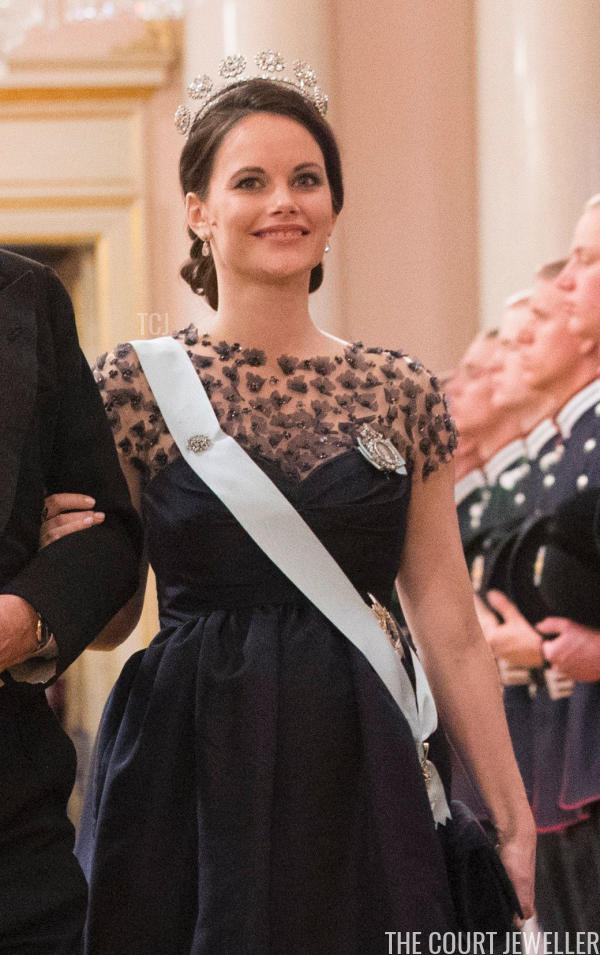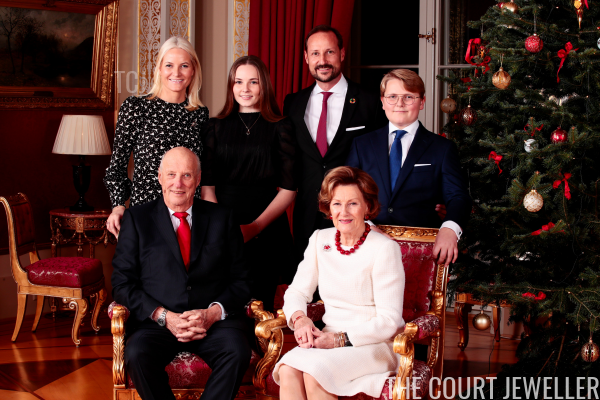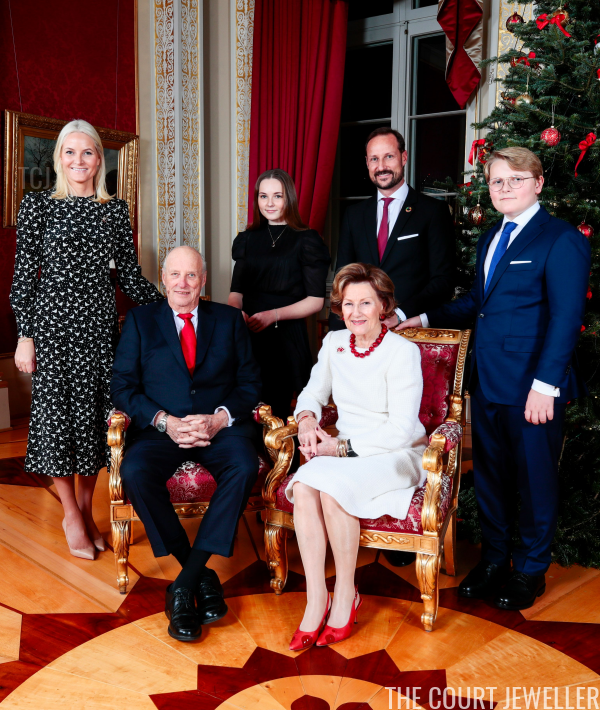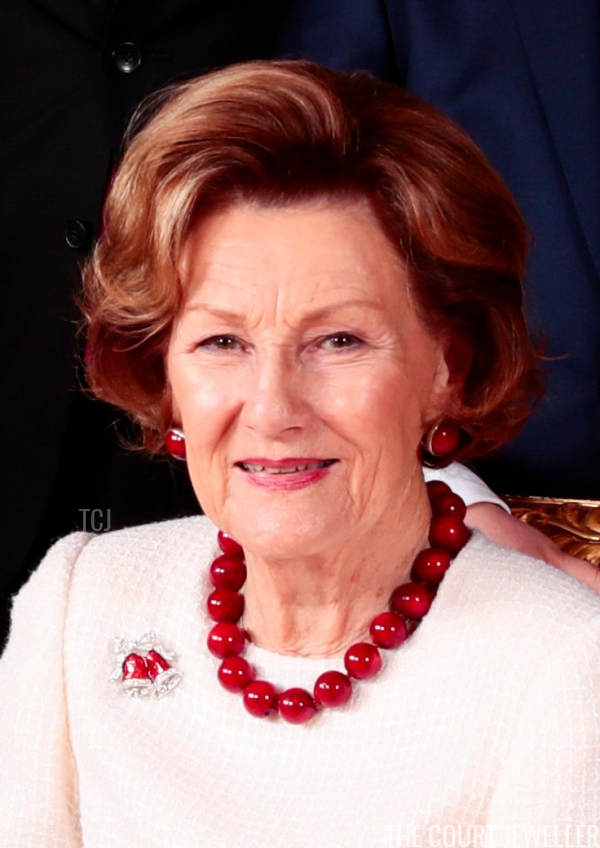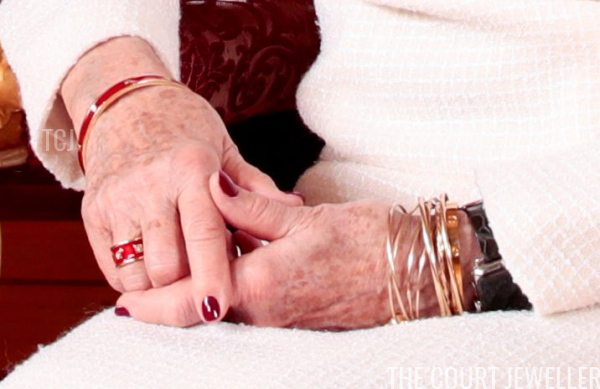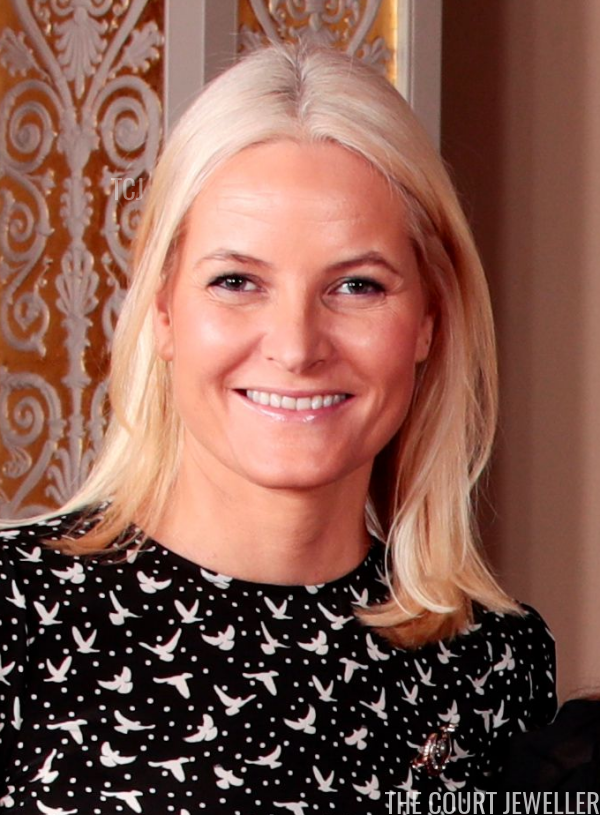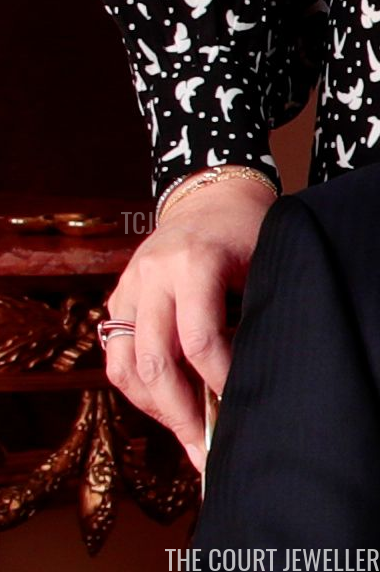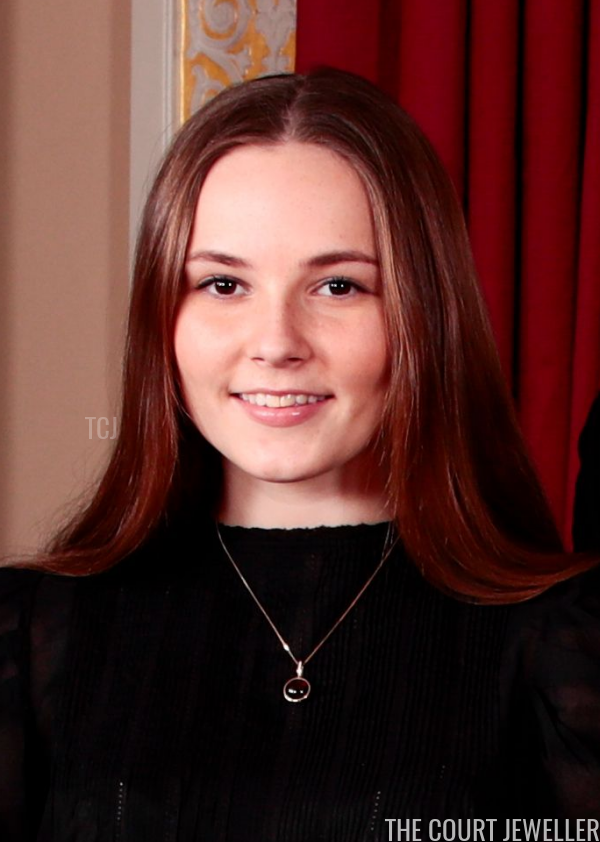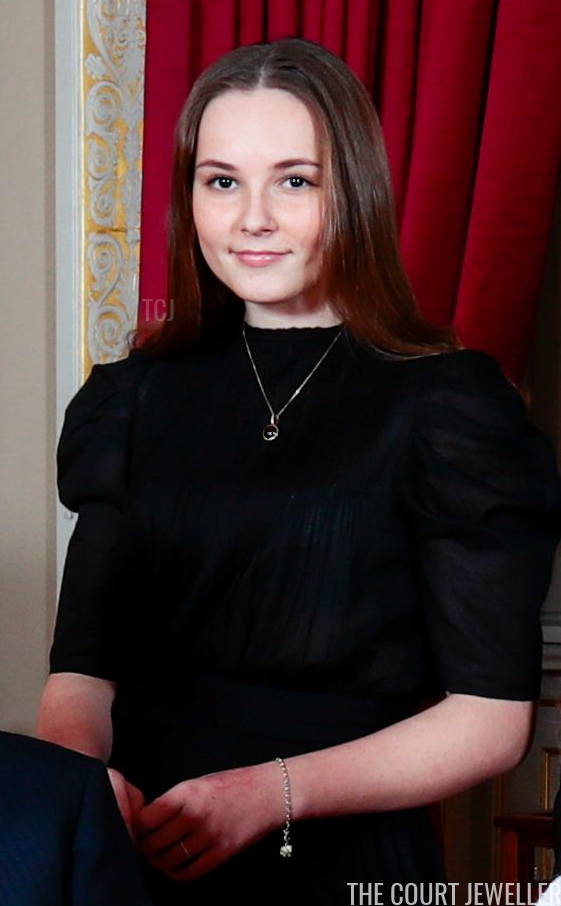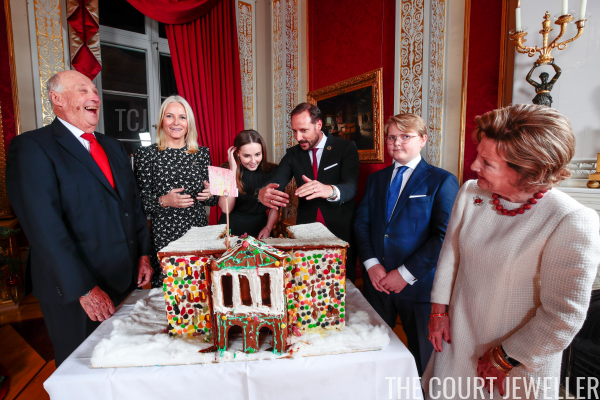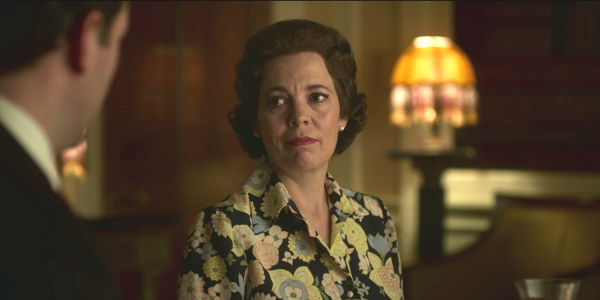
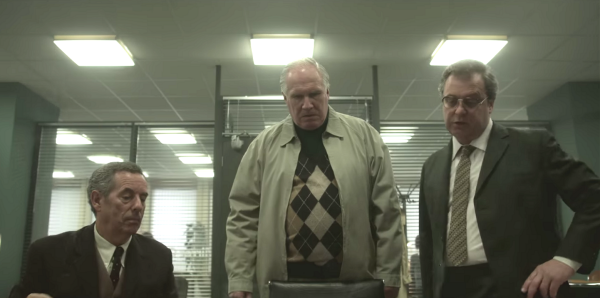
We begin in the offices of the Daily Mirror. Cecil King, chairman of the paper (and several other publishing groups, as well as a director of the Bank of England) is unhappy with headlines criticizing Prime Minister Harold Wilson — because he thinks they need to be even more critical.
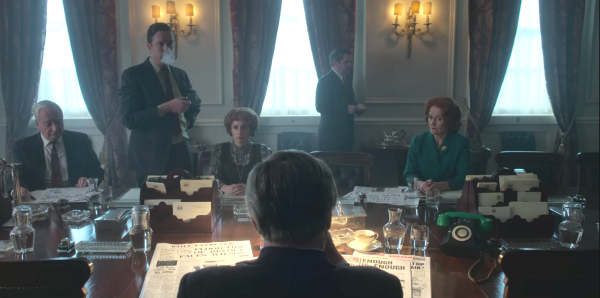
Meanwhile, over at Downing Street, Wilson and his colleagues are despairing over continual bad press. They need a distraction, and once again, the group decides that it’s time to shift the attention over to a member of the royal family. They spin their imaginary wheel, and it lands on … Lord Mountbatten!
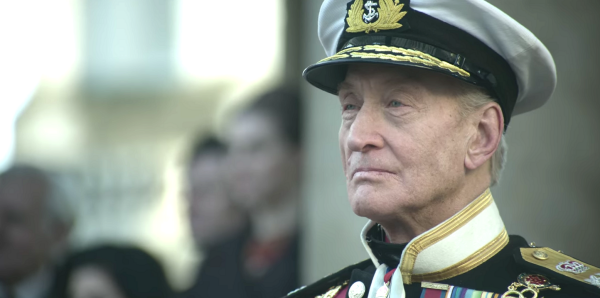
We cut to Mountbatten, who is now being played by venerable British actor Charles Dance. He’s in full military dress uniforms, with medals everywhere, taking a salute. The events depicted in these scenes took place around the summer of 1965. Mountbatten, who was 65, was serving as Chief of the Defence Staff, one of the highest military posts in Britain. He’d held the job since 1959.
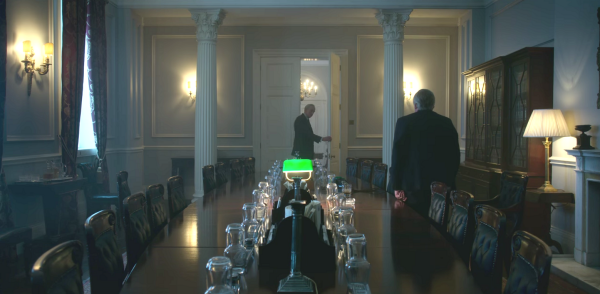
Wilson’s staff decides that, because Mountbatten has been resistant to cuts to defense spending, he’s got to go. There’s a grain of truth under all of this. In reality, Mountbatten’s appointment as CDS was up for renewal at the time the Wilson government came to power in 1964. The new Defence Secretary, Denis Healey, surveyed senior officials, who almost unanimously recommended that Mountbatten not be reappointed. It was Healey who informed Mountbatten of this decision, not Wilson. Mountbatten retired with a grand salute in July 1965, and the Queen gave him two parting gifts: the Order of Merit and an appointment as the new Governor of the Isle of Wight.
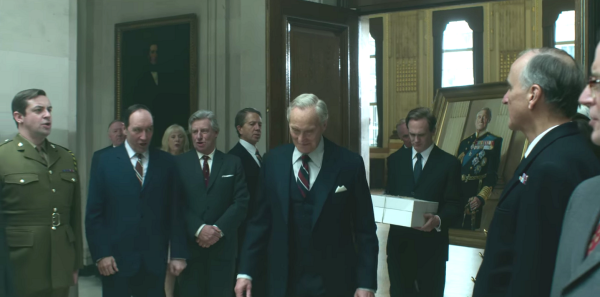
The show’s version of Mountbatten leaves Whitehall in civilian clothes, with a cake and a portrait trailing behind. He’s serenaded with “Auld Lang Syne.” In reality, the song was played by a military band as he inspected a guard of honor one last time outside the building, in a grand ceremony also attended by his daughters and sons-in-law. He gave a final salute to mark the end of a half century of military service.
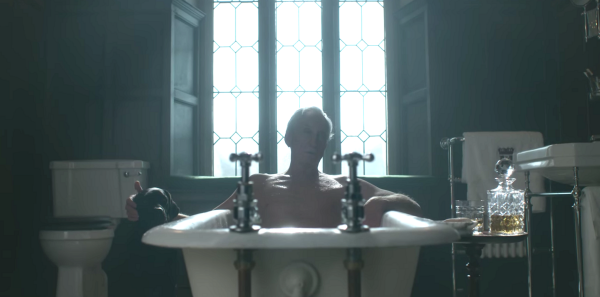
And then, the Crown version of Mountbatten heads back to the solitude of Broadlands, where he broods in the bath alongside his dog, his monogrammed towels, and his whiskey.
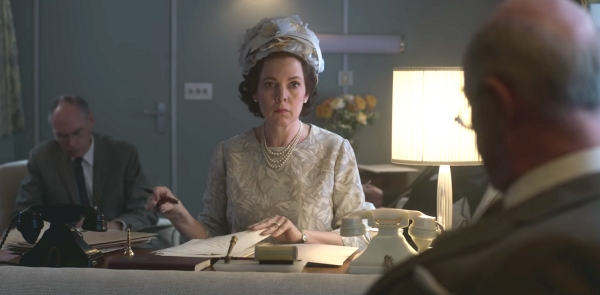
We finally catch up with the Queen, who is working on state papers aboard the royal train. (Pearls, no brooch. Sigh.) Adeane informs her that they’re almost to their destination, so she packs up and changes into more casual clothes…
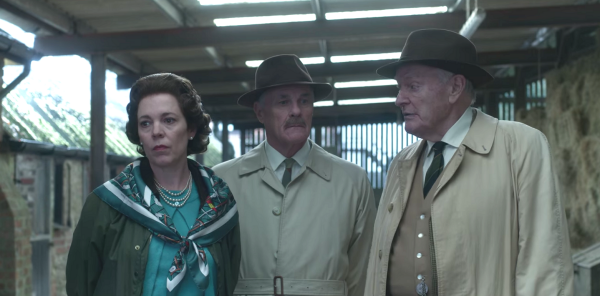
…because the destination in question is Newmarket, where she’s visiting her horses. The trainer focuses on one in particular, Apprentice, who has recovered sufficiently from an injury to race again.
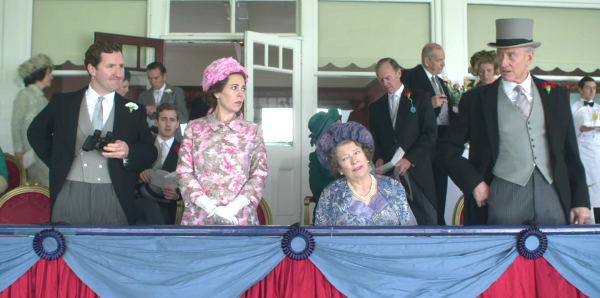
We cut to Royal Ascot, where the Queen is watching Apprentice run in the Queen Alexandra Stakes. (That really happened in June 1966.) She’s joined in the royal box by her childhood friend, Lord Porchester, as well as the Queen Mother and Lord Mountbatten. (The Queen Mum commiserates with Mountbatten about his retirement — a full year later?) The Queen Mother appears to be wearing some sort of (invented) floral brooch pinned to the neckline of her dress.
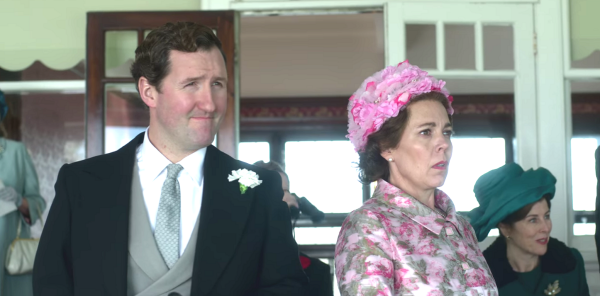
The Queen, blasphemously, is pictured without a brooch at Ascot. (She really did wear a similar outfit in 1966, but she wore the Cullinan V Brooch with it.) Apprentice loses, and she’s downtrodden. She wishes she could spend more time upgrading her horse racing operation, and Porchey wonders why she doesn’t just take some time off and do a little foreign research. She’s intrigued.
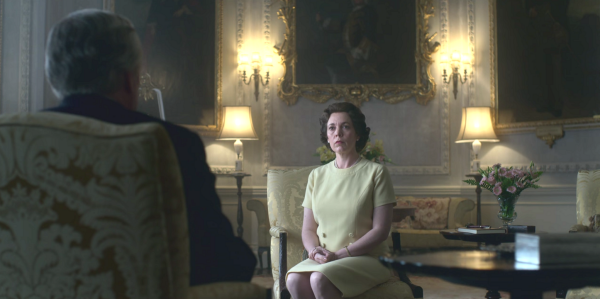
During her next audience with Wilson, the Queen (again, pearls no brooch — argggghhhhh) is so distracted by her horse plans that she can barely concentrate when he tells her about plans to devalue the pound. (This places us in the autumn of 1967.) The Queen’s only response is to tell him that she’s going on vacation, which a) is not at all what really happened, and b) totally out of character for the Queen.
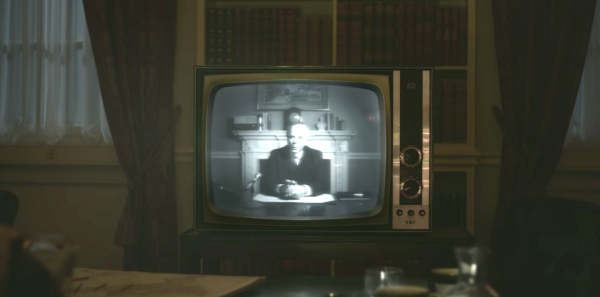
Wilson goes on television to speak to the nation about the currency devaluation. This really happened on November 19, 1967. The Queen was in the country; she had just returned from a four-day official visit to Malta with the Duke of Edinburgh. They celebrated their 20th wedding anniversary the following day.
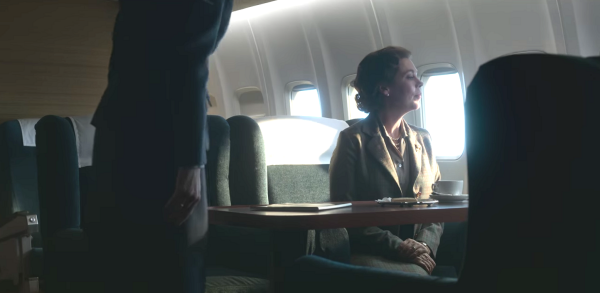
But in the fictional world of The Crown, the Queen has jetted off for her horse vacation. She wears the little invented pearly flower brooch as she, Porchey, and Charteris fly to France.
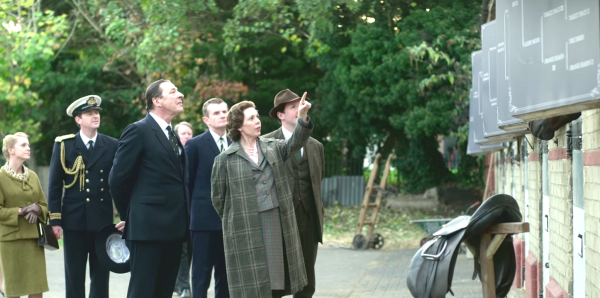
They spend some time visiting Le Quesnay, Alec Head’s thoroughbred farm in Normandy.
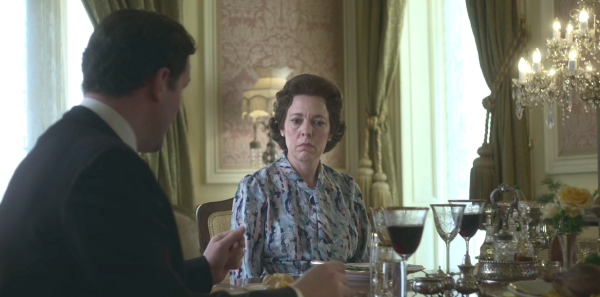
She and Porchey talk shop over a meal afterward, deciding how to change her entire operation. He thinks she needs to go to America to continue her on-the-ground research. It’s going to be more time away, but she’s fine with it — the Queen Mother is taking care of palace business. (This is all fictional, so whatever, but why are we not seeing any of that???)
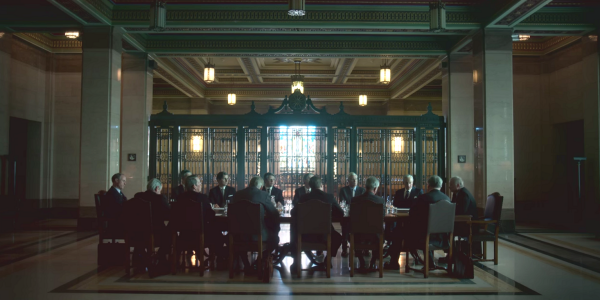
Back in Britain, many people are not taking the devaluation well at all, especially a group of men headed by Cecil King. They invite Mountbatten to a secret meeting, where they basically outline plans to overthrow the Wilson government and install Mountbatten in his stead. It’s complicated, but some version of this meeting allegedly did happen in May 1968. According to Peter Wright, a former intelligence officer, Mountbatten was reportedly approached, heard the plan, declared it treasonous, and that was that. Biographer Andrew Lownie, however, believes that Mountbatten took the offer more seriously.
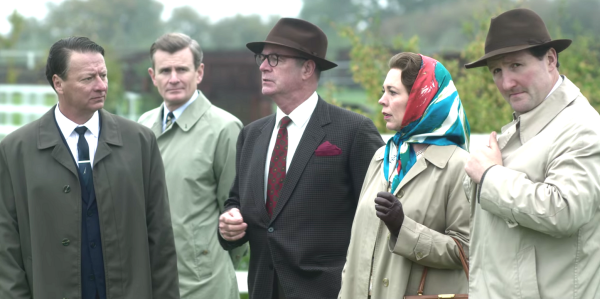
Meanwhile, the Queen is continuing her fictional horse vacation with a visit to Kentucky. (Except the Queen’s first visit to Kentucky took place in … October 1984!) We get a date check in these scenes — it’s supposed to by 1967. She and Porchey have lunch, and she asks him to be the new manager of her stables. (He really did take over the job in 1969.)
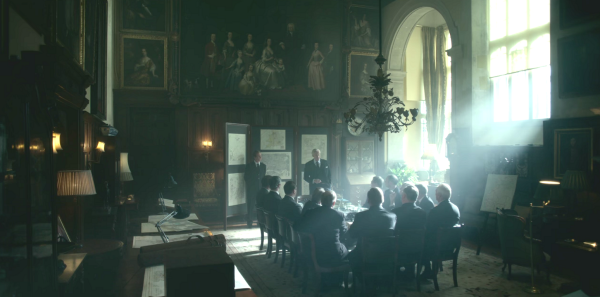
The Crown is following along with the Andrew Lownie narrative of the attempted Wilson coup, so we see Mountbatten invite the whole gang to Broadlands, where he explains why none of this could ever possibly work — unless they could convince the Queen to go along with it. And, hm, which one of them just happens to be a cousin/uncle to Her Majesty? He says he’ll talk to her about it.

But the Queen’s not even aware of any of these developments. She and Porchey are dining privately in Kentucky, and she pours her heart out to him about the fact that she knows she was just born to work with horses, not to be a monarch. She really wishes that were her life.
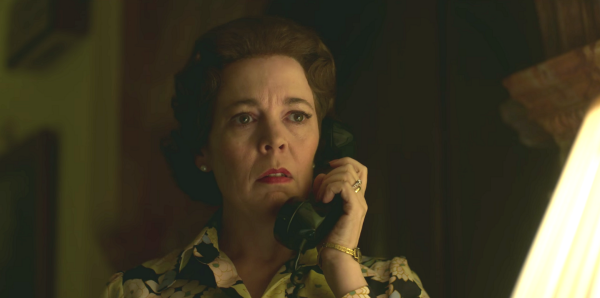
They’re interrupted by a phone call. She thinks it’s going to be Mountbatten on the other end of the line (he called earlier), but it’s really Wilson, informing her that he knows there’s an attempt to oust him, and Mountbatten is involved. She promises that she’ll take care of it, and tells Porchey they’re headed back to Britain.
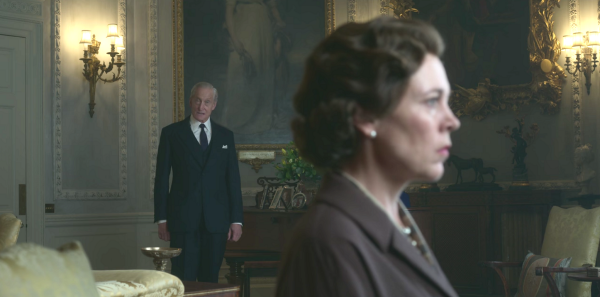
Back at the palace, the Queen tears into Mountbatten. (Lownie’s biography claims that the Queen did have to talk Mountbatten out of the whole coup business.)
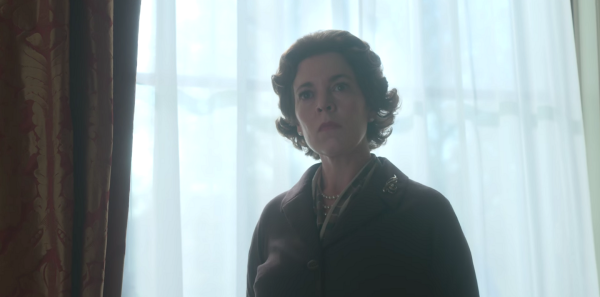
Wearing a little invented gold brooch, she reminds him of his place in the family — as a mentor to Charles, especially. She also asks if he’s even bothered to visit his sister, Princess Alice, since her arrival from Greece.
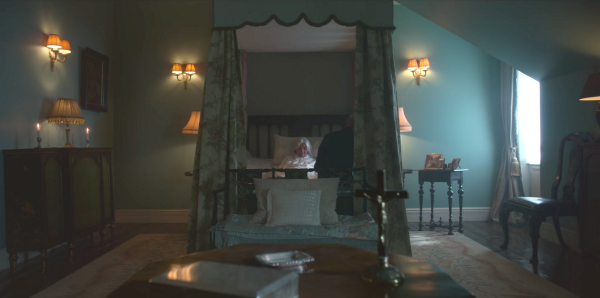
He does just that, and the two of them talk about their family and her lack of a clear sense of home. They both feel like they’re now watching the world from the outside, not participating in it.
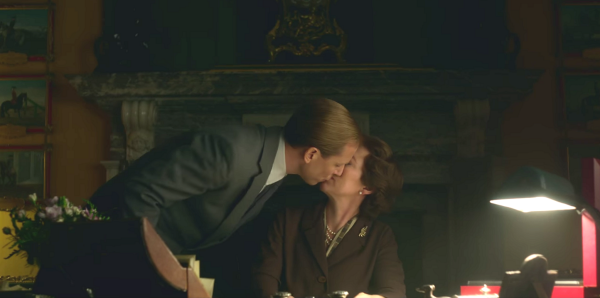
Philip comes home and finds the Queen at work. They have a little back-and-forth about her extended (fictional) vacation, he expresses some mild jealousy about Porchey, and then they canoodle. And that’s how we leave things.
